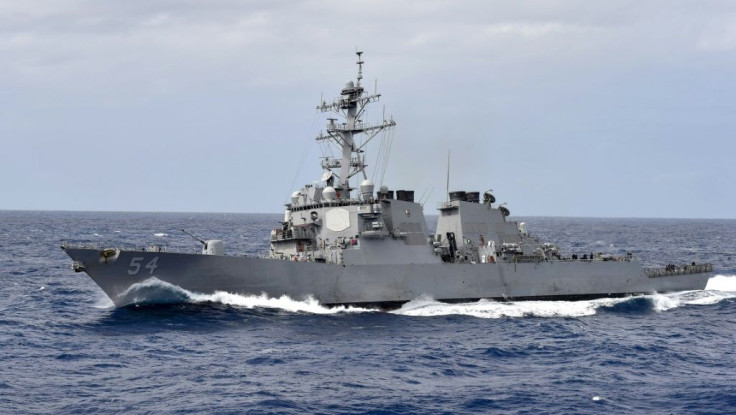Germany To Send Warships To Indo-Pacific; China Warns It Will Oppose Any Attempt To Challenge Its Sovereignty
KEY POINTS
- Germany to send more warships, joining drills with allies in the Indo-Pacific
- Germany sent a warship to the South China Sea last year, the first time in 20 years
- Expanding military presence sending out "chaotic signal": China
With Germany announcing plans to send more warships to the Indo-Pacific region, China on Thursday warned that it will oppose any attempts to challenge its sovereignty in the disputed water body.
The Indo-Pacific includes the South China Sea, where China has made massive sea and land claims under its nine-dash line but also faces competing claims from other littoral states including U.S. allies like Philippines and Taiwan. The Taiwan strait, particularly, has seen a rise in tensions as China has tried to erase the median line that was traditionally accepted as a dividing line between China and Taiwan. The U.S. warned a day earlier that it will not stand by if China attempts to "permanently alter" the "status quo" in Taiwan.
German defense chief Gen. Eberhard Zorn indicated that his country will expand its military presence in the Indo-Pacific region by sending more warships and joining drills with allies as it keeps an eye on the "enormous" build-up of China's armed forces.
"This is how we want to consolidate our presence in the region," Gen. Zorn told Reuters in an interview in Berlin.
Responding to a question by Reuters during his media briefing, China's Foreign Ministry spokesman Wang Wenbin reiterated that China will uphold "a defense policy (that) is defensive in nature"
"China develops necessary military capabilities to defend its legitimate national security interests, which is entirely legitimate and reasonable," Wang told reporters. He said China respects countries' freedom of navigation and overflight but added that it "firmly rejects any country's move to use the freedom of navigation as a pretext to undermine China's sovereignty, endanger China's security and attack and smear China."
China claims most of the South China Sea and has also made claims recently that the Taiwan strait is not an intenational waterway. The U.S. Navy regularly conducts freedom of naviation operations in the South China Sea.
Zorn said Germany planned to send troops to participate in training exercises in Australia next year, while the navy would send a fleet of several more ships to the region in 2024.
Berlin had last year sent its first warship in almost 20 years to the disputed waters of the South China Sea irking China — its top trading partner — in a move that was seen as a counter to Beijing's territorial ambitions in the region. The country also participated in a joint exercise in Australia in August, sending military aircraft there in what was the German's air force's largest peacetime deployment.
Reacting to Germany's decision to participate in the joint exercise, China's state run Global Times commented that "the increasing military presence of Germany in the Indo-Pacific showed the divergences inside the German government, sending out a "chaotic signal" on its China policy,"
Given its role in the two world wars, Germany has historically maintained a low profile in security matters, focusing instead on growing trade and economic partnership with China. However, Western allies have been calling on Germany to show more leadership in security matters, given its economic might. In 2020, Berlin published a new Indo-Pacific strategy with a focus on strengthening alliances with democracies in the region, marking a turning point.

© Copyright IBTimes 2024. All rights reserved.












